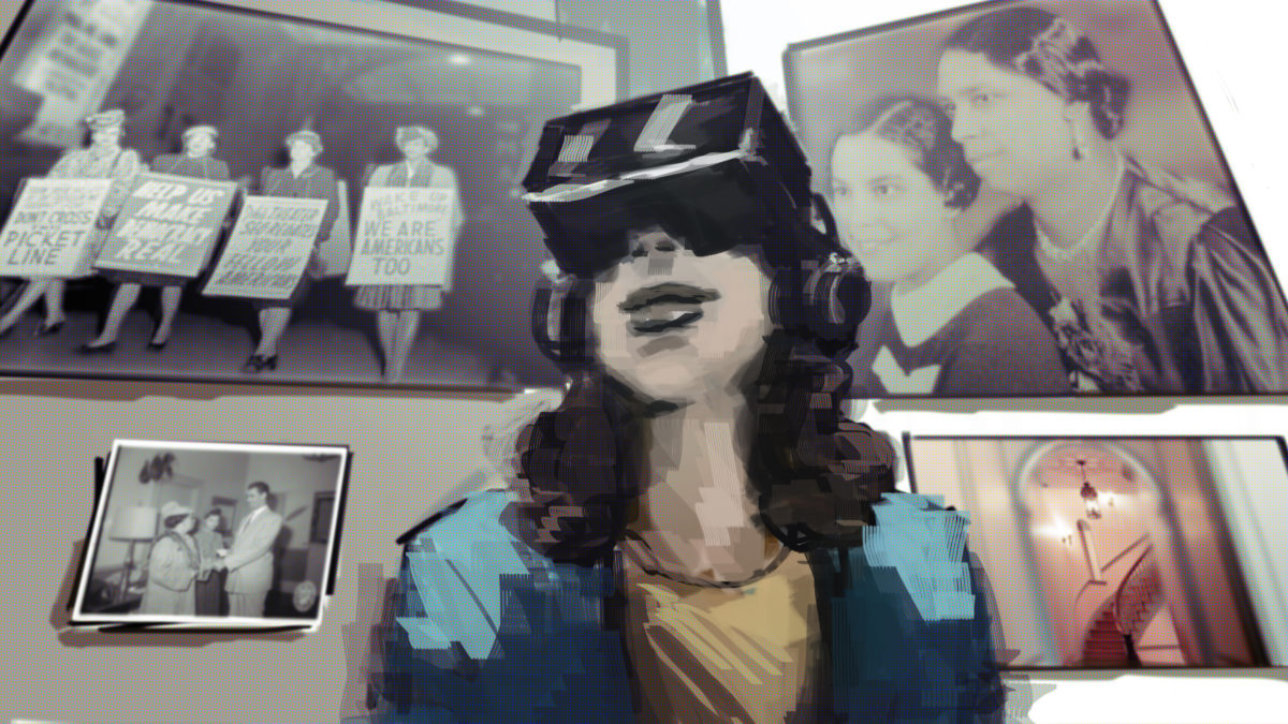By
Annette Porter sees virtual reality as a tool for empathy.
To Taura Musgrove, it’s a way to make a key figure of Baltimore’s past literally come alive.
But the filmmakers each freely admit that they are still learning their way around the new technology. That’s why they applied for Johns Hopkins’film incubator program. Backed by the university’s newly created Saul Zaentz Innovation Fund in Film and Media (which is separate from the arts incubator that hitmaker and JHU professor Thomas Dolby talked about creating), the program is run out of the Centre Theatre in Station North.
This week, the VR-focused projects being developed by Musgrove and Porter were among 10 from the incubator’s first cohort that were selected to receive a share of $195,000 in funding. As a result, each of the projects will be located in Baltimore city.
Here’s a little bit about those two projects:
To Free Our People—The Lillie May Carroll Jackson Interactive Technology Project
Baltimore filmmaker Taura Musgrove sees an opportunity to teach a new generation about Baltimore civil rights icon Lillie May Carroll Jackson.
She’s seen work in museums that use virtual reality to recreate historical figures, and recalled the power of a hologram of a Holocaust survivor at the Smithsonian’s Holocaust Museum.
“You get to sit with him and you get to experience him,” she said. “You get to look him in the eyes.”
That technology could help connect Baltimoreans with Carroll Jackson, who is known as the mother of the civil rights movement. Martin Luther King, Jr.spread nonviolent protest, but she used many of the same tactics in Baltimore in the 1930s. An augmented reality exhibit would help connect a new generation to her work.
PIC
“I thought that her work related so well in terms of what’s happening in Baltimore today,” Musgrove said, adding that the exhibit could be a “call to action.”
During the incubator program, she conceptualized and dug into the project.
“The Saul Zaentz program really helped me start deconstructing what it would mean, what it would cost,” Musgrove said. “It pushed me to do more research on Lillie May.”Musgrove even met members of Carroll Jackson’s family.
She’s still pushing forward toward development, and looking to partner with local companies that have tech expertise in the area.
Lockdown
A longtime documentary filmmaker who recently moved to Baltimore from London, Annette Porter wants to give voice to the unheard and unseen people and places of the world.
With the lack of immediate familiarity, she is always looking for ways to make a stronger emotional connection for the audience with subjects that aren’t necessarily familiar to them. With 360 virtual reality film, she believes the idea of making the viewer feel like they are in the same space with the subject can only strengthen that.
“It puts you right in somebody else’s shoes,” she said.
Porter is working on creating a series of immersive films that take viewers inside what it’s like to be in prison. Called Lockdown, it would exist in a video diary format.
But she also needed to learn more about how to create films in that immersive style. During the incubator program, Porter used the time to connect with video game developers from Baltimore using the format through the BmoreVR meetup, as well as other filmmakers. The program also ran a workshop on VR storytelling where she learned a lot. She also got out and experimented herself during a trip to Newfoundland that involved a bicycle and a helmet-rigged camera, among other approaches.
“It is a different way of filming and different way of storytelling,” Porter said.


